Zucchini is a strong grower. It spreads fast, produces heavily, and takes over any space it’s given. But it doesn’t do everything well.
It struggles with pests like squash bugs and cucumber beetles. It’s prone to mildew. And unless pollinators show up in numbers, you might end up with plenty of flowers and not much fruit.
That’s where companion planting comes in.
Some plants enrich the soil with nutrients zucchini needs. Others act as a natural shield – repelling bugs, covering the ground, or drawing in helpful insects like bees and parasitic wasps.
A few even work as decoys, pulling the worst pests away from your main crop.
In this article, you'll find the best vegetables, flowers, and herbs to grow with zucchini and how each one helps.
Why Companion Planting Helps Zucchini

Zucchini isn’t exactly low-maintenance. It eats up nutrients fast, spreads like it's in a race, and tends to attract a parade of pests the moment it gets comfortable.
So planting it next to the right neighbors? That’s not just a nice idea – it’s often the difference between a good harvest and a stressed-out plant full of holes.
Some plants bring nutrients back into the soil, especially nitrogen, which zucchini uses up quickly.
Others act like natural bug repellents – strong-smelling herbs, root crops that mess with insect patterns, or flowers that attract predators like ladybugs and lacewings.
There’s also the space factor. Zucchini sprawls, but you can tuck in smaller crops underneath or pair it with tall, sturdy plants like corn that give it something to climb.
Some flowers help too – drawing in bees when zucchini flowers are open for just a few short hours.
In short: smart companion planting means less stress on your plants, fewer pests, and a garden that takes care of itself a little better.
The Best Vegetables to Grow with Zucchini
Some vegetables make the perfect partners for zucchini – helping boost soil health, repel pests, or maximize garden space. Here are the top picks to grow side by side with your zucchini plants.
1. Beans and Peas

These are classic nitrogen-fixers – plants that take nitrogen from the air and store it in the soil. Zucchini, being a heavy feeder, loves that.
Pole beans can even share a trellis with climbing zucchini, while bush beans work as a living mulch, shading the soil and holding back weeds.
2. Corn
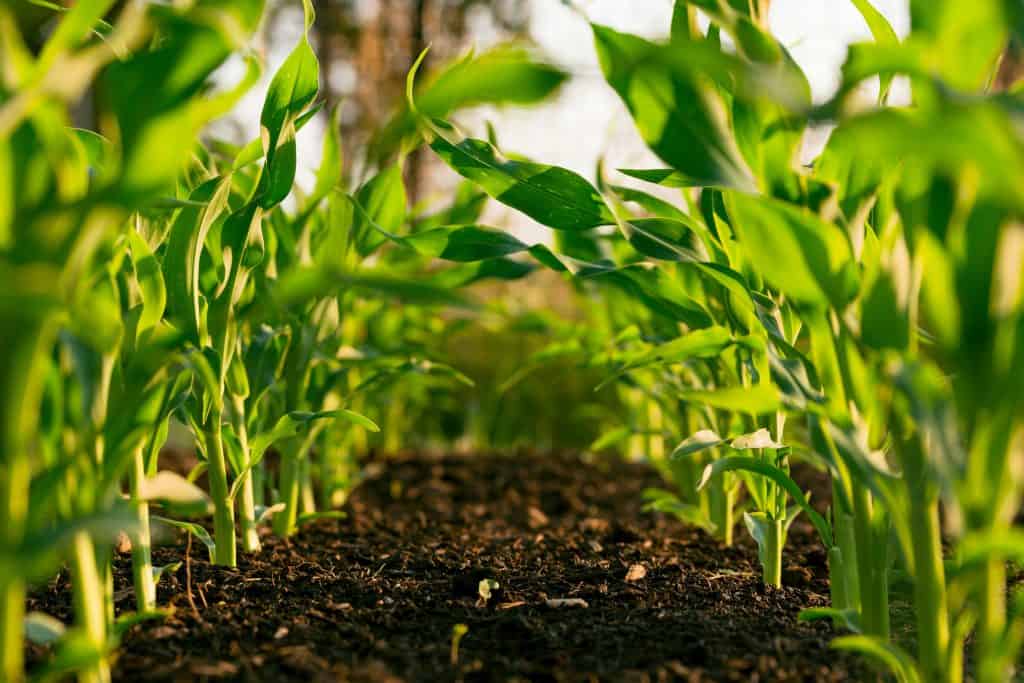
Corn does two things really well: it adds vertical structure and plays nice with zucchini.
In traditional systems like the Three Sisters, it’s used to support squash vines. It also creates partial shade, which can help slow down soil evaporation in hot spells.
3. Garlic, Onions, Chives, and Leeks


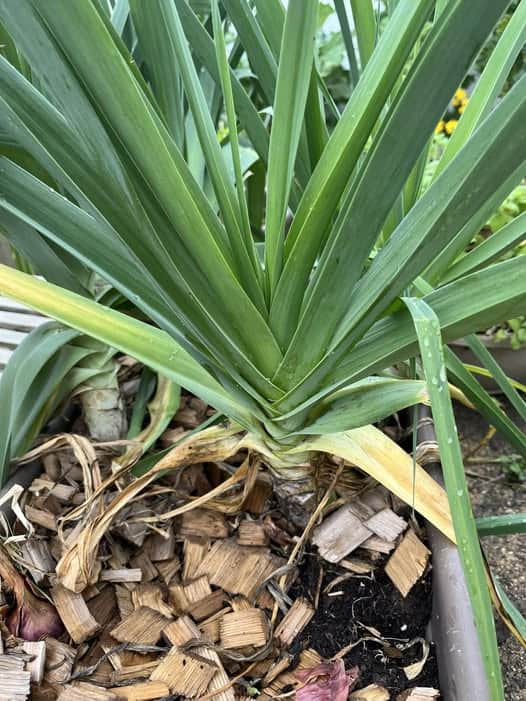
These alliums are your garden’s line of defense. Their strong scent keeps away aphids, squash bugs, and cucumber beetles.
Garlic has bonus benefits – some gardeners swear it improves flavor and boosts overall plant health thanks to its natural antifungal and antibacterial properties.
4. Radishes and Lettuce
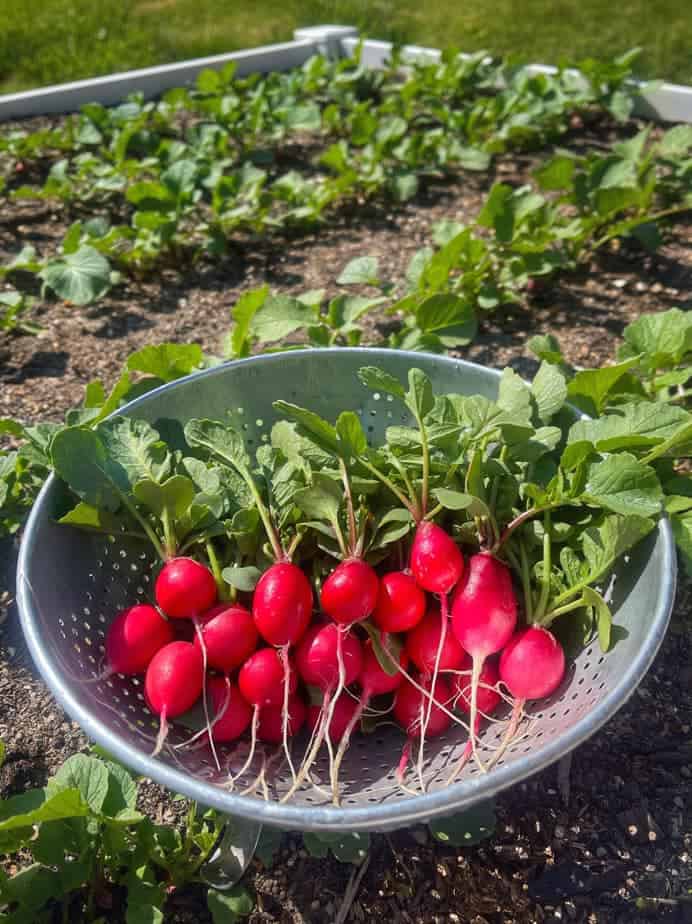
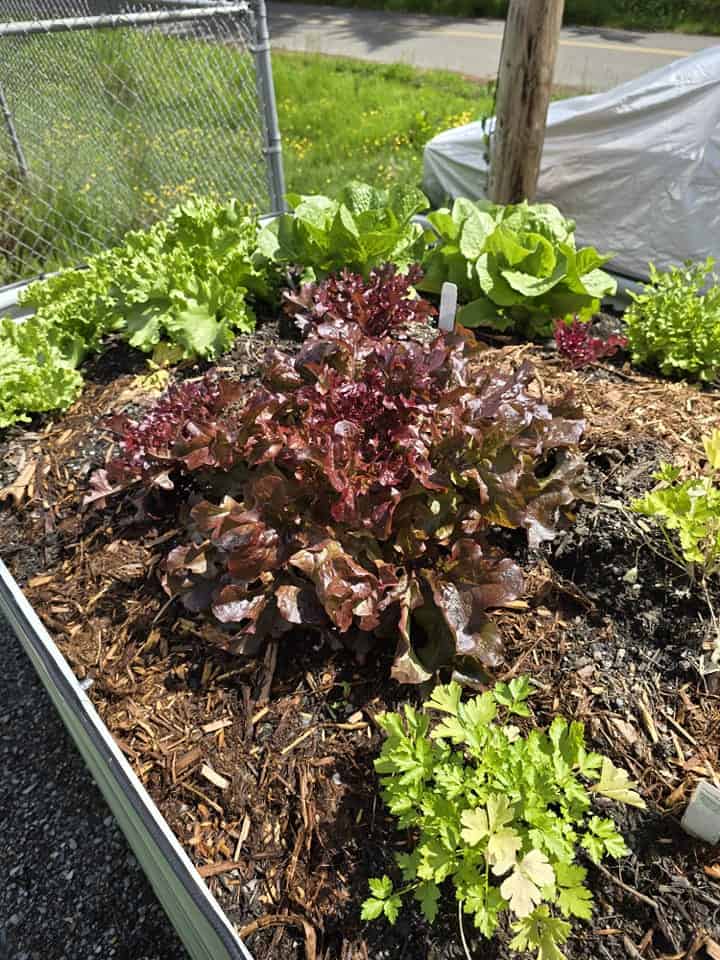
Quick growers, small footprint. Radishes deter root maggots and cucumber beetles while loosening up the soil. Lettuce shades the ground, holds in moisture, and keeps weeds down. When it bolts, it also brings in hoverflies and parasitoid wasps. Win-win.
5. Tomatoes, Peppers, and Eggplants



These don’t share pests with zucchini, which is a big plus. They need similar light and nutrients, but make sure to space them well. Zucchini's leaves can trap humidity and cause fungal issues if things get too crowded.
6. Carrots, Beets, and Celery

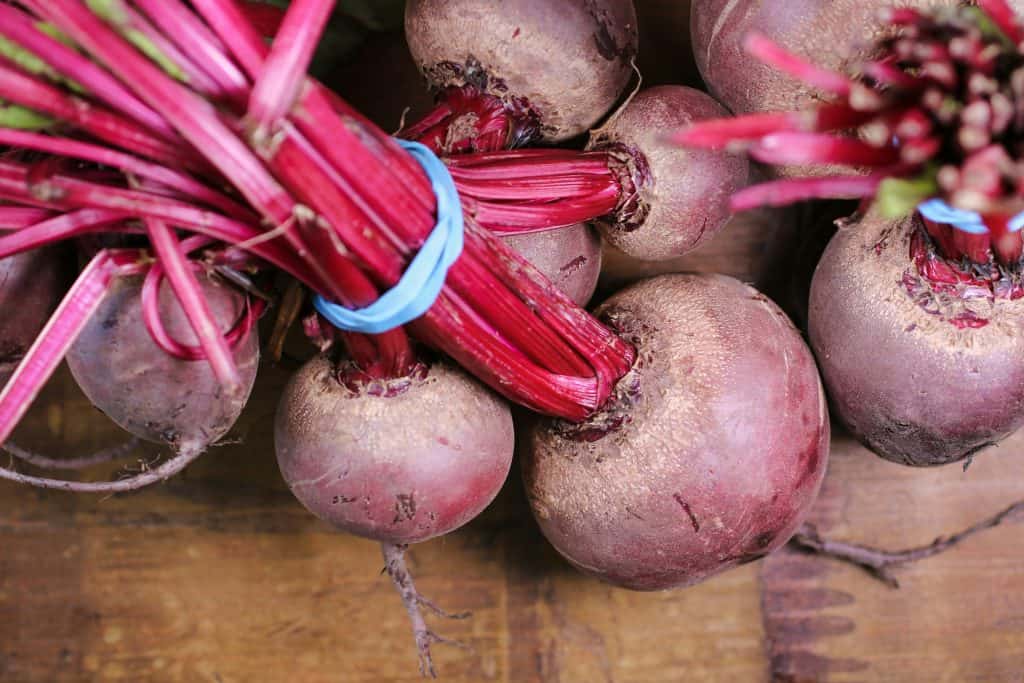

Since zucchini roots are shallow, pairing it with root vegetables helps avoid competition. These crops grow below the action, making good use of space and nutrients that zucchini might not reach.
7. Clover

Living mulch at its best. Clover covers the ground to suppress weeds and trap moisture, fixes nitrogen into the soil, and draws in bees and other pollinators.
8. Blue Hubbard Squash

This one’s not for eating at least not in this context. It’s a trap crop, planted on purpose to draw squash vine borers and squash bugs away from your zucchini. They go for it first, sparing your main plants.
The Best Flowers to Grow with Zucchini
Zucchini has one big weakness: it needs pollination, and fast. Its flowers don’t stay open long, and if bees or other pollinators aren’t around when that window opens, your fruit won’t set.
That’s where flowers come in.
But they don’t just bring pollinators. Some flowers repel pests. Others act as decoys—luring the bad bugs away so your zucchini can grow in peace. A few do all of the above.
Here are the flowers that actually earn their place in the garden:
1. Marigolds
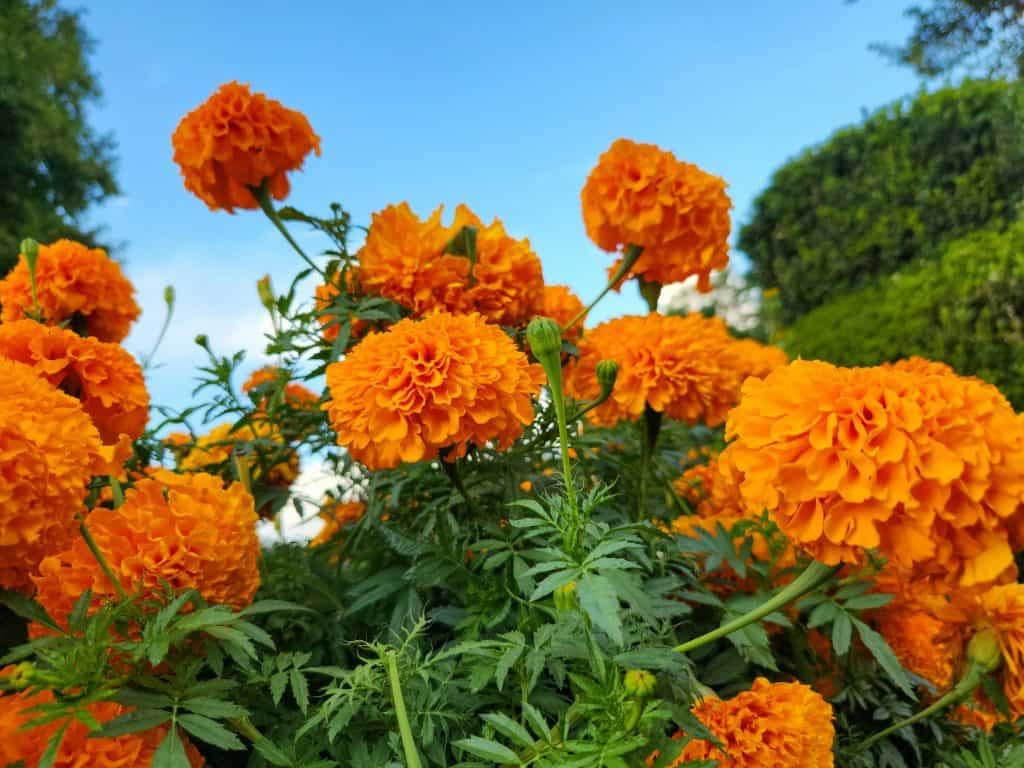
These are garden workhorses. French marigolds are especially helpful – they pull in pollinators, yes, but also lacewings and other beneficial bugs.
The scent repels aphids and even rabbits. Underground, the roots help guard against nematodes. And the compound pyrethrum, found in the flowers, deters pests without bothering helpful insects.
2. Nasturtiums

These look delicate but work hard. They trap aphids, slugs, squash bugs, and even whiteflies. They also attract hummingbirds, which help keep insect populations in check.
Climbing types can even share space with your zucchini vines if you’re short on room.
3. Sunflowers

Big, bold, and surprisingly useful. Sunflowers draw in bees, of course, but their tall, sturdy stalks can also act as a natural support system for climbing zucchini varieties.
They don’t take much care and tend to get along with everything around them.
4. Borage
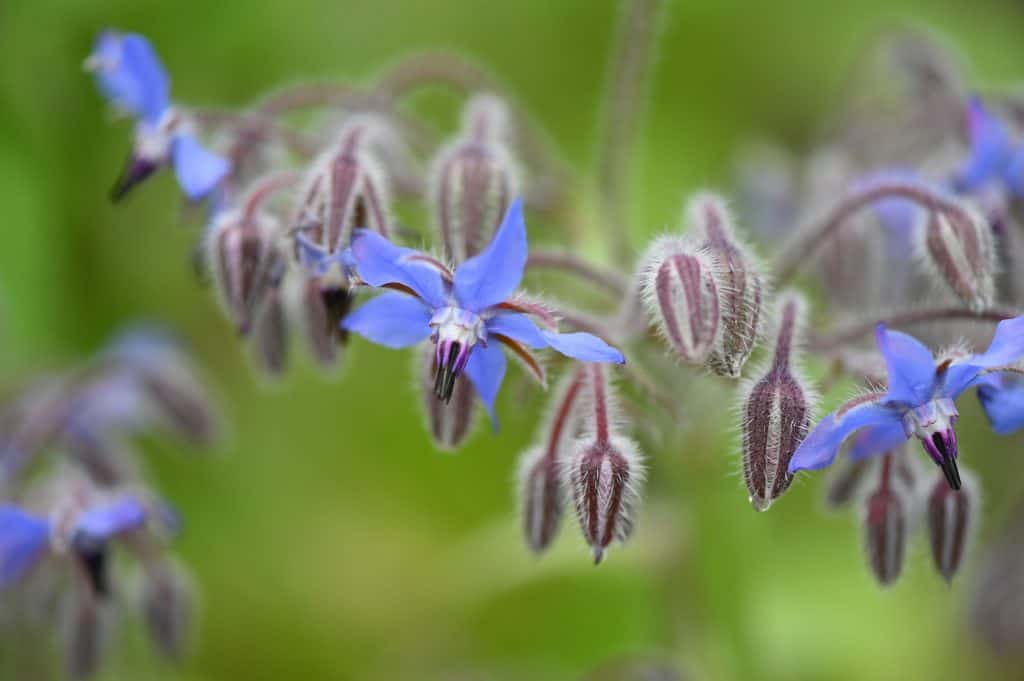
One of the more underrated choices. Borage brings in pollinators and parasitic wasps (the good kind).
Its deep taproots pull nutrients from lower soil layers – nutrients your zucchini will benefit from once the borage dies back. Some gardeners also say it helps protect against tomato hornworms and cabbage moths.
5. Sweet Alyssum

Tiny flowers, big impact. Alyssum attracts ladybugs and parasitic wasps that help control aphids. It’s low-growing too, so you can tuck it in around the base of your zucchini to double as ground cover.
6. Chamomile
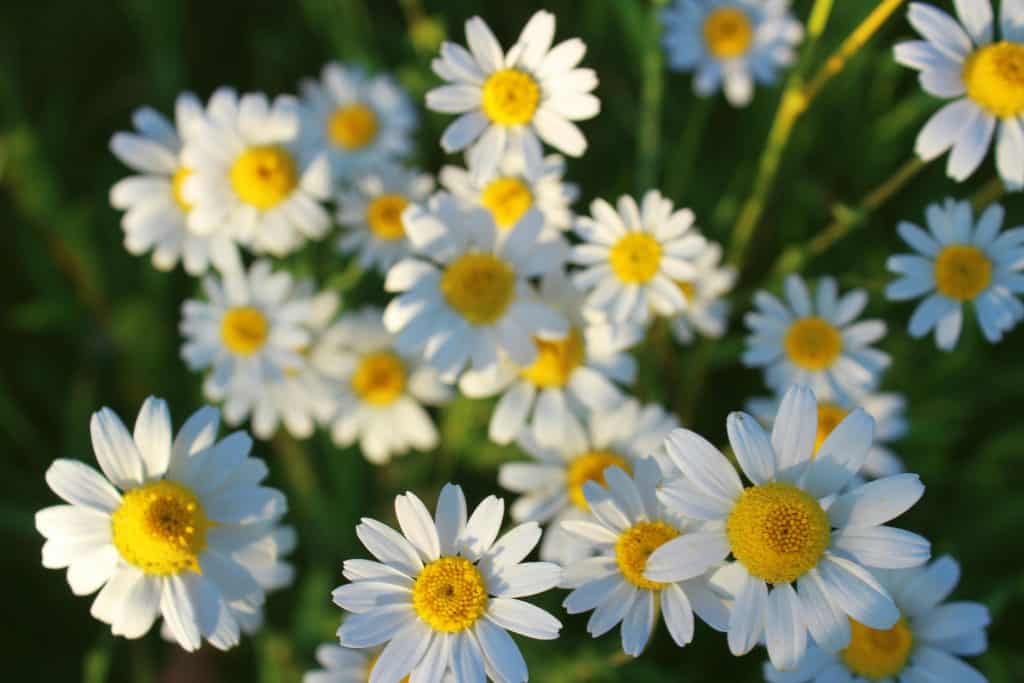
There’s no hard science on this one, but a lot of gardeners swear by chamomile.
It’s believed to boost plant health and even increase yield. Whether that’s from soil improvement or just better insect balance is unclear but somehow, it works.
7. Other Helpful Flowers
Not all flowers need their own paragraph, but these are still solid companions:
| Calendula | Draws pollinators and helps repel pests. |
| Bee Balm | Loved by bees and butterflies. |
| Echinacea | Great for native bees and adds strong garden diversity. |
| Yarrow | Attracts predatory insects and improves nearby plant health. |
| Zinnias | Low fuss, high pollinator traffic. |
Together, these flowers create a support system your zucchini actually needs – and they make your garden look pretty good too.
The Best Herbs to Grow with Zucchini
Herbs are underrated companions in a vegetable garden. They’re small, easy to squeeze into tight spots, and most of them smell strong enough to confuse or repel pests.
Some even fight fungal diseases – something zucchini really needs help with. Others pull double duty by attracting helpful insects or improving overall plant health.
Let’s break down which ones actually earn their keep next to zucchini:
1. Basil

Besides being a kitchen staple, basil works surprisingly well in the garden. It helps repel aphids, whiteflies, and even mosquitoes.
Some gardeners also say it can slow down the spread of mildew when planted near zucchini. Bonus: it smells great and doesn’t need much room.
2. Dill
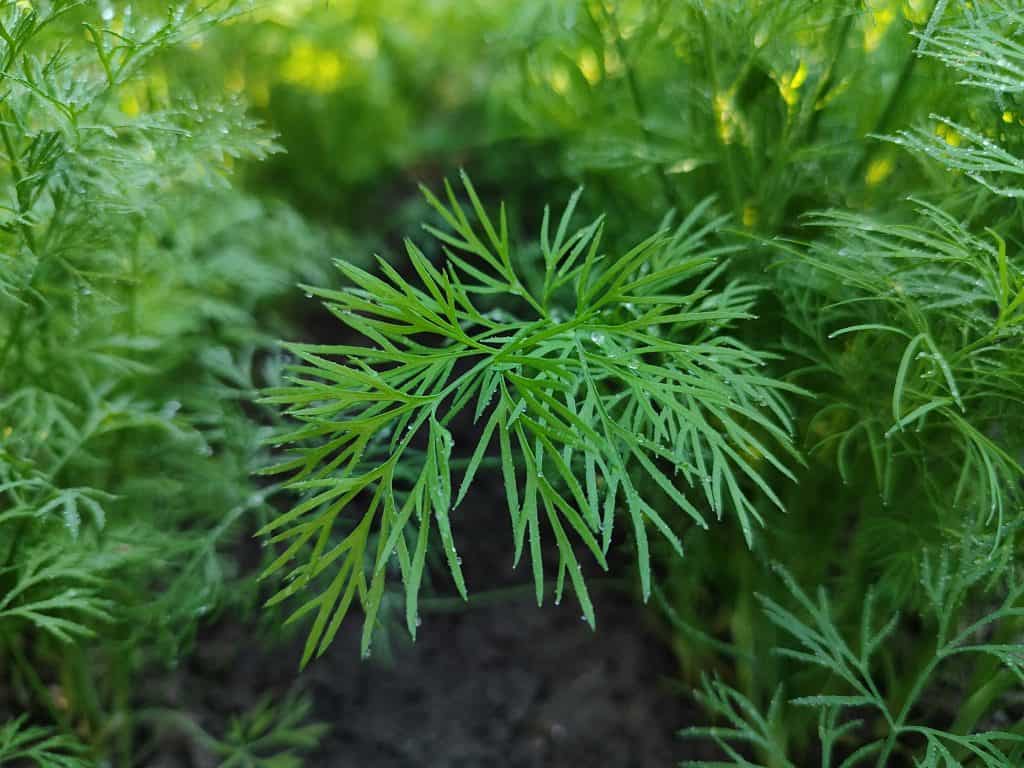
Dill is a magnet for beneficial insects especially parasitic wasps that hunt down squash vine borers. It flowers quickly in hot weather, and those flowers are a hotspot for pollinators. If it bolts, leave it. That’s when it does its best work.
3. Oregano
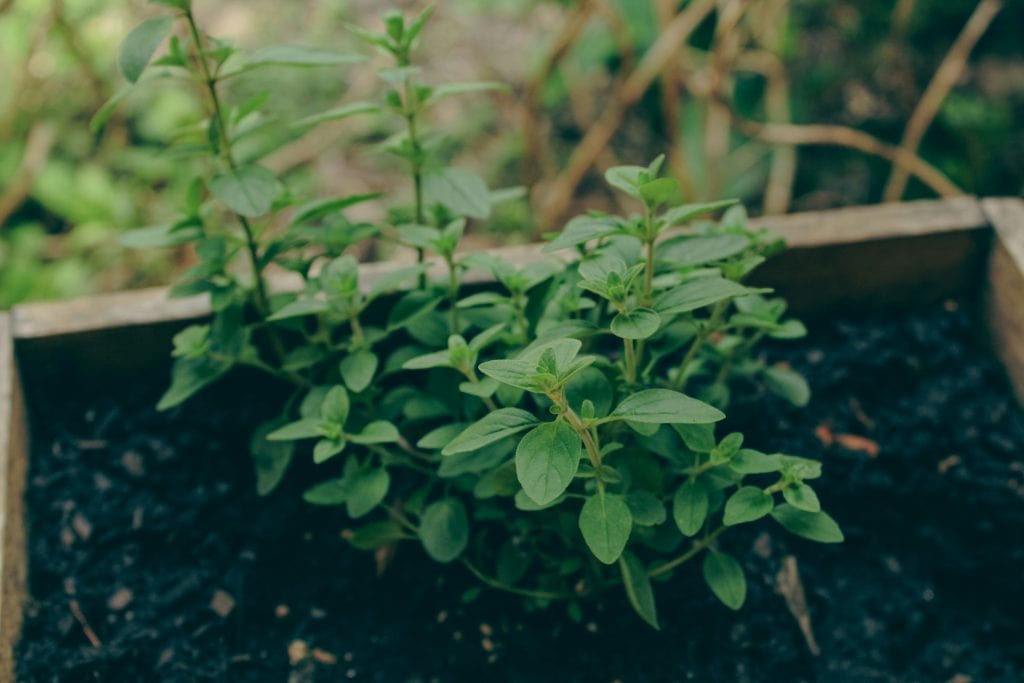
Oregano doesn’t just make pizza better. Its aromatic oils keep aphids and spider mites away. It also has natural anti-fungal properties that can help keep powdery mildew in check.
Some growers believe it improves zucchini’s flavor too, though that one’s harder to prove.
4. Parsley
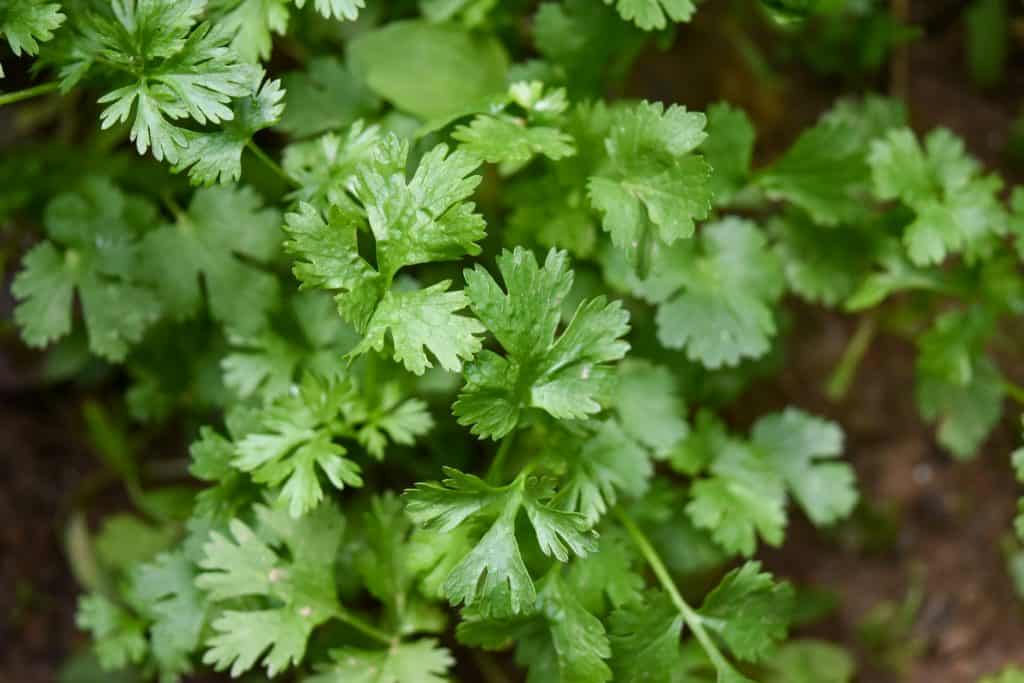
This herb attracts hoverflies, which lay eggs that hatch into aphid-eating machines. It’s also thought to improve overall plant health and help prevent mildew.
It’s one of those quiet workers you barely notice until everything around it is doing better.
5. Mint, Rosemary, and Thyme

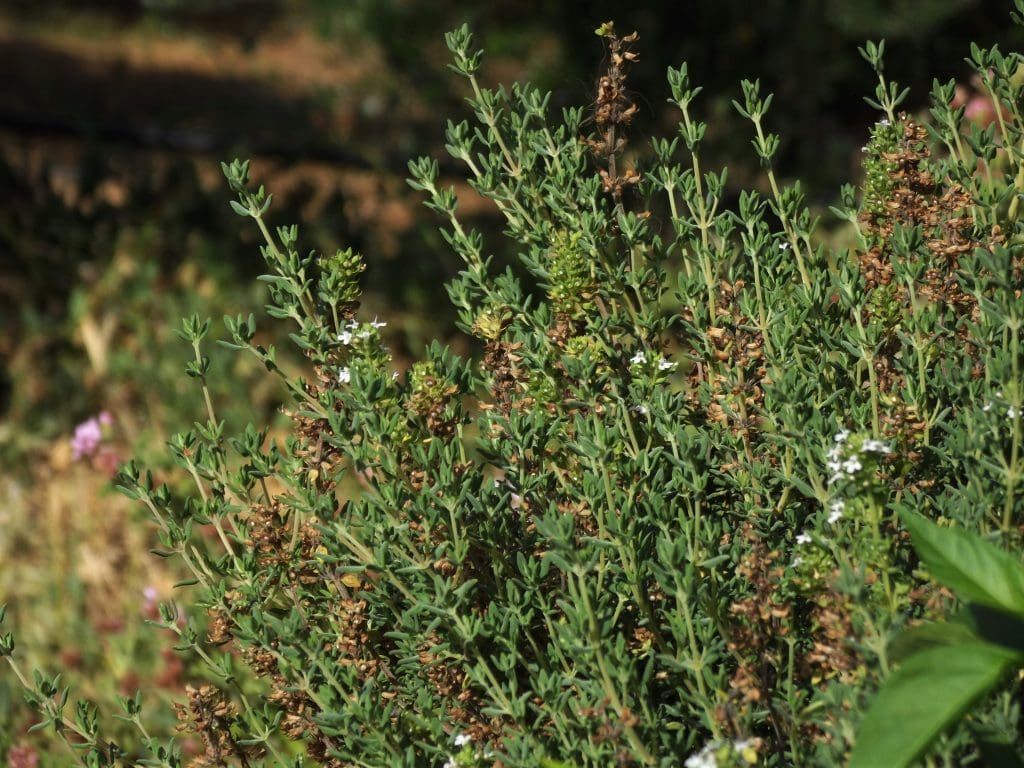

Grouped together because they serve the same purpose: strong scent, strong defense. They help keep out squash bugs, aphids, and a bunch of other unwanted visitors.
Mint spreads aggressively, so it’s best grown in containers or at the edge of the bed where it can’t take over. Rosemary and thyme are better behaved but still do the job.
6. Sage and Lavender


Sage has a grounding, earthy smell that seems to throw off squash vine borers. Lavender brings in bees like crazy while also helping to keep pests off nearby plants.
Both look good and don’t compete much with zucchini for space or nutrients.
Each of these herbs does something different – some attack pests, some guard against disease, and a few just make the space better for everything else. And they’re all easy to grow right alongside your zucchini.
Plants to Avoid Near Zucchini
Some plants just don’t work well with zucchini. Whether it's because they attract the same pests or compete for resources, these are the ones to keep apart:
| Plant | Why to Avoid It Near Zucchini |
|---|---|
| Other Squash | Attracts the same pests (squash bugs, vine borers); can lead to worse infestations. |
| Cucumbers | Same family, same pests like powdery mildew and squash bugs. |
| Potatoes | Heavy feeders; compete for nutrients and water. Can attract aphids. |
| Fennel | Releases compounds that can inhibit zucchini growth and affect nearby plants. |
| Pumpkins | Sprawling vines compete for space and invite the same pests as zucchini. |
When to Plant Companions
Start everything around the same time as your zucchini, once the risk of frost has passed and the soil is warm. Most companions (like beans, herbs, and flowers) do fine in similar conditions and grow well together from day one.
For faster growers like radishes or lettuce, you can even tuck them in a little earlier to get a head start before the zucchini shades them out.
Where to Put Them
Keep tall companions (like corn or sunflowers) on the north or east side so they don’t block the sun. Low-growing plants like lettuce or sweet alyssum fit under or around the edges of your zucchini.
Spread out anything that needs airflow. Zucchini leaves trap humidity, and if you plant too close, things like mildew can take hold fast.
Plant herbs and flowers along the borders. They’ll still do their job attracting pollinators and repelling pests without crowding the vegetables.
How to Mix and Match
Don’t overdo it. Pick 2–3 good companions for each planting bed, and space them with intention.
A row of bush beans between your zucchini plants, a border of basil and nasturtiums, a few lettuces under the leaves – that’s already doing a lot.
Try rotating companion combos from season to season. It keeps the soil healthy and breaks up pest and disease cycles.
Pick a few companion plants, tuck them in, and let your zucchini thrive with a little help from its friends.

Zucchini can grow strong on its own but it does better with help.
The right companion plants improve the soil, pull in pollinators, block pests, and make better use of your space. Beans feed the roots. Flowers bring the bees. Herbs handle the bugs. Each one plays a role.
You don’t need to plant everything listed in this guide. Just choose a few that match what your garden needs whether it’s better pollination, fewer squash bugs, or simply more balance.
Let the plants do some of the work for you.
Frequently Asked Questions (FAQs)
What vegetables grow best with zucchini?
Beans, peas, corn, radishes, carrots, and lettuce all pair well. They either add nutrients to the soil, make good use of space, or help keep pests in check.
Can zucchini grow next to tomatoes and peppers?
Yes, as long as you give them space. They don’t share the same pests, but overcrowding can cause mildew, especially in humid weather.
Which flowers attract pollinators for zucchini?
Marigolds, sunflowers, borage, sweet alyssum, and bee balm are top picks. They pull in bees, wasps, and other helpful insects that boost fruit production.
What herbs help protect zucchini from pests?
Basil, oregano, dill, mint, and thyme all help repel common pests like aphids and squash bugs. Some also fight mildew and improve overall plant health.
When should I plant zucchini and its companions?
Plant everything once the soil is warm and frost danger is gone. Most companions thrive in the same conditions and grow well alongside zucchini right from the start.
Ready To Transform Your Garden?
Are you looking for the best way to layout your garden beds? Maybe you're feeling a bit stuck on how to make the most of your space?
We’ve got you covered! Check out our 101+ Garden Bed Layout Ideas for your next raised bed project. This guide is filled with creative and practical ideas that can help you design a garden that fits your style, whether you’re just starting out or have been gardening for years.
Get your copy today and get inspired to bring your gardening dreams to life.

